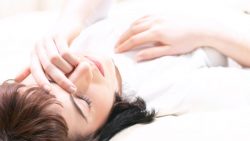Signs and Symptoms of Alcohol Induced Anxiety
Alcohol induced anxiety is one of a number of psychiatric disorders that occur as a result of alcohol use. This disorder can be both temporary and permanent depending on the amount of alcohol regularly consumed and the length of time that you used alcohol.
Alcohol Induced Anxiety or Generalized Anxiety?
One of the hallmarks of alcohol withdrawal is anxiety. According to the National Institute on Alcohol Abuse and Alcoholism, it is very difficult for doctors to tell the difference between alcohol induced anxiety, generalized anxiety, and a panic disorder that existed before the alcoholism started.
Symptoms of Alcohol Induced Anxiety

Restlessness and fatigue are common signs of alcohol induced anxiety.
The symptoms of alcohol induced anxiety mirror those of several other anxiety disorders. According to the Mayo Clinic, the symptoms of alcohol or substance induced anxiety are:
- insomnia or difficulty falling or staying asleep
- feelings of impending doom
- restlessness
- tension
- difficulty concentrating
- stomach upset
- difficulty breathing or shortness of breath
- avoiding things that make you anxious
- sweating
- rapid breathing
- feelings of weakness
- fatigue
- constant worry
The feelings associated with alcohol induced anxiety often result in a permanent anxiety disorder. Fortunately the majority of anxiety issues are treatable with the use of a variety of medications. This includes:
- blood pressure medications
- benzodiazepines
- SSRI’s
- antidepressants
If you need treatment for your alcohol induced anxiety or your alcohol abuse, call 888-647-0051 (Who Answers?) .
Outward Signs you Might Notice in Someone who has Alcohol Induced Anxiety
If you know someone who might be suffering from this type of anxiety and is an alcoholic, there are several key signs to look for. It is important to remember that these can also be signs of generalized anxiety disorder that the addict might be self medicating with alcohol. Some of these signs are:
- sweating
- trembling or shaking
- tremors in the hands
- signs of nervousness such as leg shaking or tapping
- cold or clammy skin
- not paying attention particularly when something is important
- agitation
- aggression when questioned about the anxiety
- circular thinking
- creased brow or increased worry lines
- constant tightness around the mouth or frowning particularly when they do not have alcohol
- paranoia
- obsessive or compulsive behaviors
- talking too fast or too slow
Usually these signs begin to appear after a person has stopped drinking or is prevented from drinking for an extended amount of time. It is important to remember that there are other causes for these types of behaviors but the person in question needs treatment for an anxiety disorder.
Finding Treatment for Alcohol Induced Anxiety
Since alcohol induced anxiety is extremely difficult to diagnose, an excellent treatment center is necessary to diagnose and treat it. Most people suffering from alcohol withdrawal will experience extreme anxiety when they no longer have access to alcohol.
Once they are in treatment, they will learn how to cope with the anxiety as well as receive medication to calm the symptoms of anxiety. To find a treatment center that can help, call 888-647-0051 (Who Answers?) .





